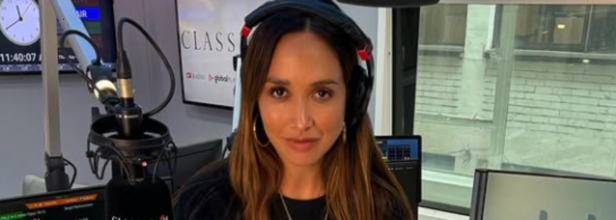
Credits: Instagram/@myleeneklass
Myleene Klass Becomes MBE: No One Should Wait For Three Miscarriages Before Getting Help
English singer and TV show host Myleene Klass was recognized in this year's New Year Honours for services to women's health, miscarriage awareness and to charity. She was made a Member of the Order of the British Empire (MBE), and she revealed that she was "utterly shocked and surprised". She told the BBC that she was proud of how far she had come after suffering four miscarriages and that she was being recognized as the "figurehead to help other women who have experienced baby loss."
"When I think back to how all of this started, it all came from a very dark place, and I certainly didn't have it in mind to become a campaigner at the time. Anyone who has experienced baby loss will know how personal and difficult it is to vocalize this level of trauma," she said.
Pregnancy And Miscarriage
Her major work lies in backing changes to the Women's Health Strategy in Parliament to ensure that women do not have to suffer up to three miscarriages before receiving help. She told the BBC, "If you suffered three heart attacks you wouldn't only be offered support after the third one and so it shouldn't be the same with baby loss."
Due to her efforts, last year, the Department of Health and Social Care also announced a package of new measures to boost the health and wellbeing of women and girls. It also included a pilot scheme that ensures medical intervention for women after every miscarriage.
Miscarriage Is Not A Taboo
In her documentary Myleene Klass: Miscarriage And Me (2021), which was also Bafta-nominated, she for the first time talked about the experiences she had been through. She said that it never gets easier, and feels like "ripping off the band aid every time".
"No one wants to talk about dead babies so women are left to deal with issues of baby loss and fertility alone and that needs to change," she said.
She has also authored a number of books on parenting and family life, including They Don't Teach This At School and has been an ambassador for Save the Children for more than 10 years. She said, "A miscarriage is not a dark secret that women have to hide away and I won't stop campaigning until every woman and family has the support they need."
What Happens During Miscarriage?
A miscarriage, also known as spontaneous abortion is the unexpected ending of a pregnancy in the first 20 weeks of gestation. Most miscarriages are beyond a mother's control and occurs because the fetus stops growing.
There are types of miscarriages:
Missed miscarriage: You lose the pregnancy but are unaware of what happened. You show no symptoms, and only get to know about it until your next ultrasound appointment.
Complete miscarriage: You lose the pregnancy and your uterus is empty. This is experienced by bleeding and passed fetal tissue.
Recurrent miscarriage: Three consecutive miscarriages, which affects about 1% of couples.
Threatened miscarriage: Your cervix stays closed, but you bleed and experience pelvic cramping. The pregnancy usually continues with no further issues.
Inevitable miscarriage: You experience cramps, bleeding and cervix also starts to dilate, resulting to amniotic fluid.
© 2024 Bennett, Coleman & Company Limited

